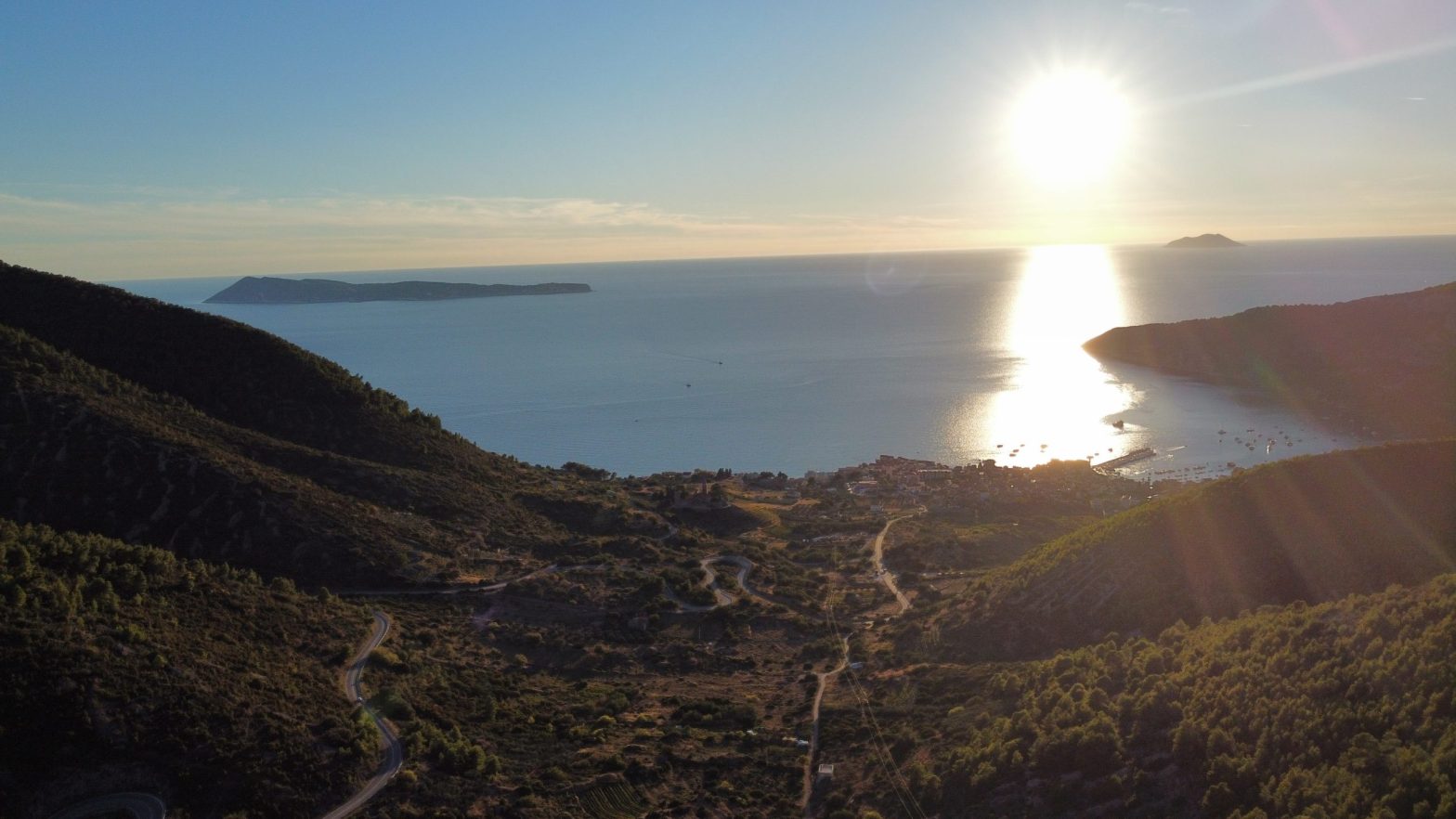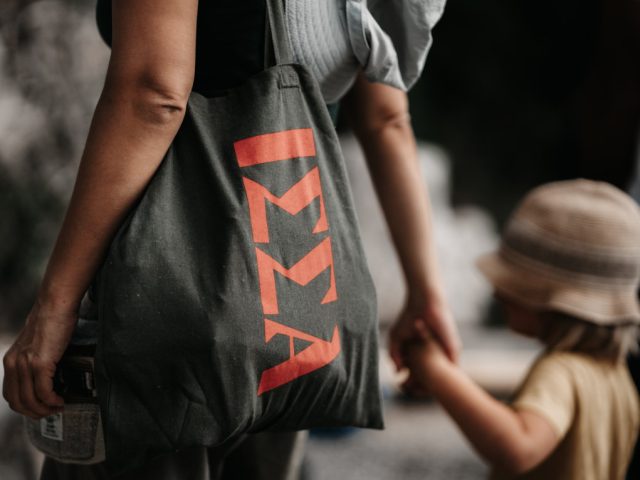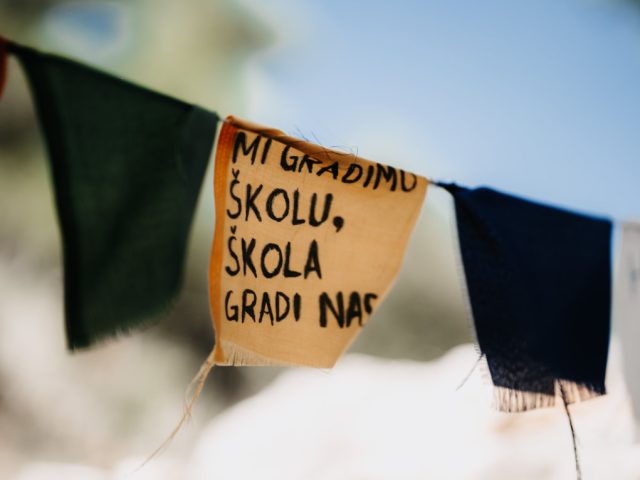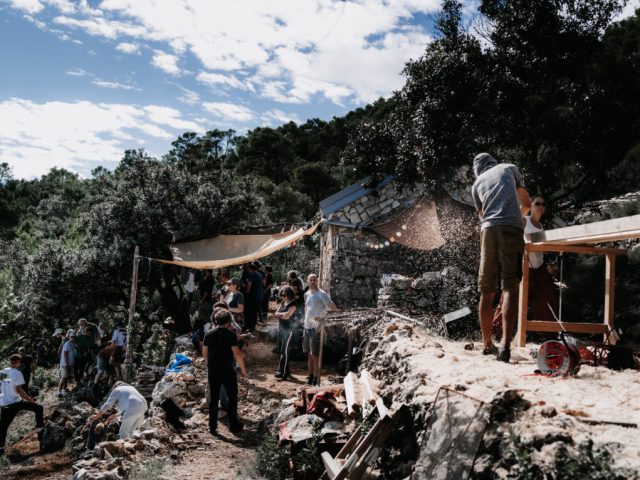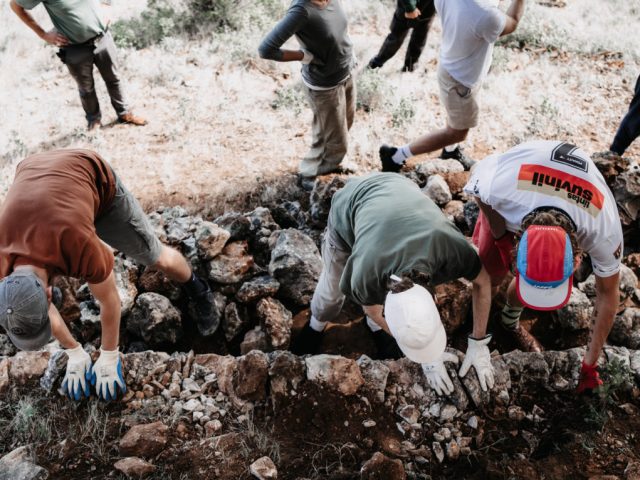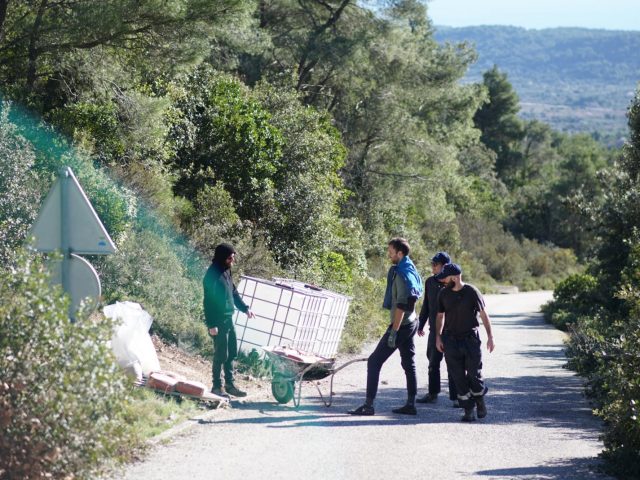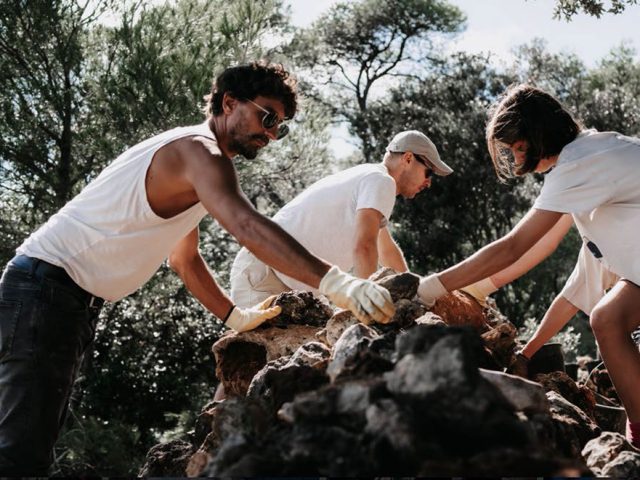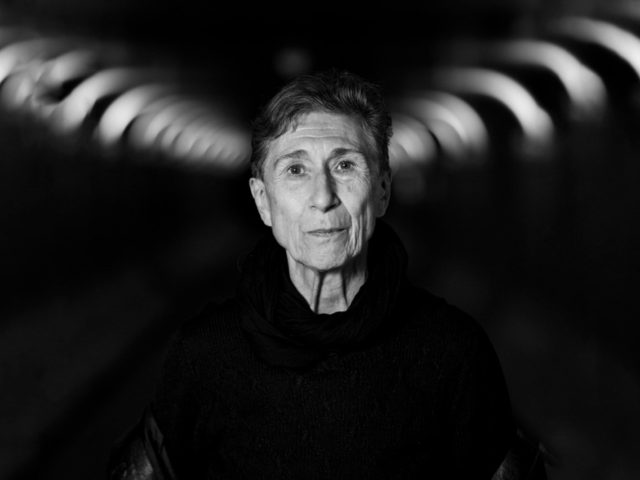Essay by Mira Oklobdžija, originally published as “Škola autonomije na Visu”, Peščanik, 16.9.2023., after her visit to ISSA
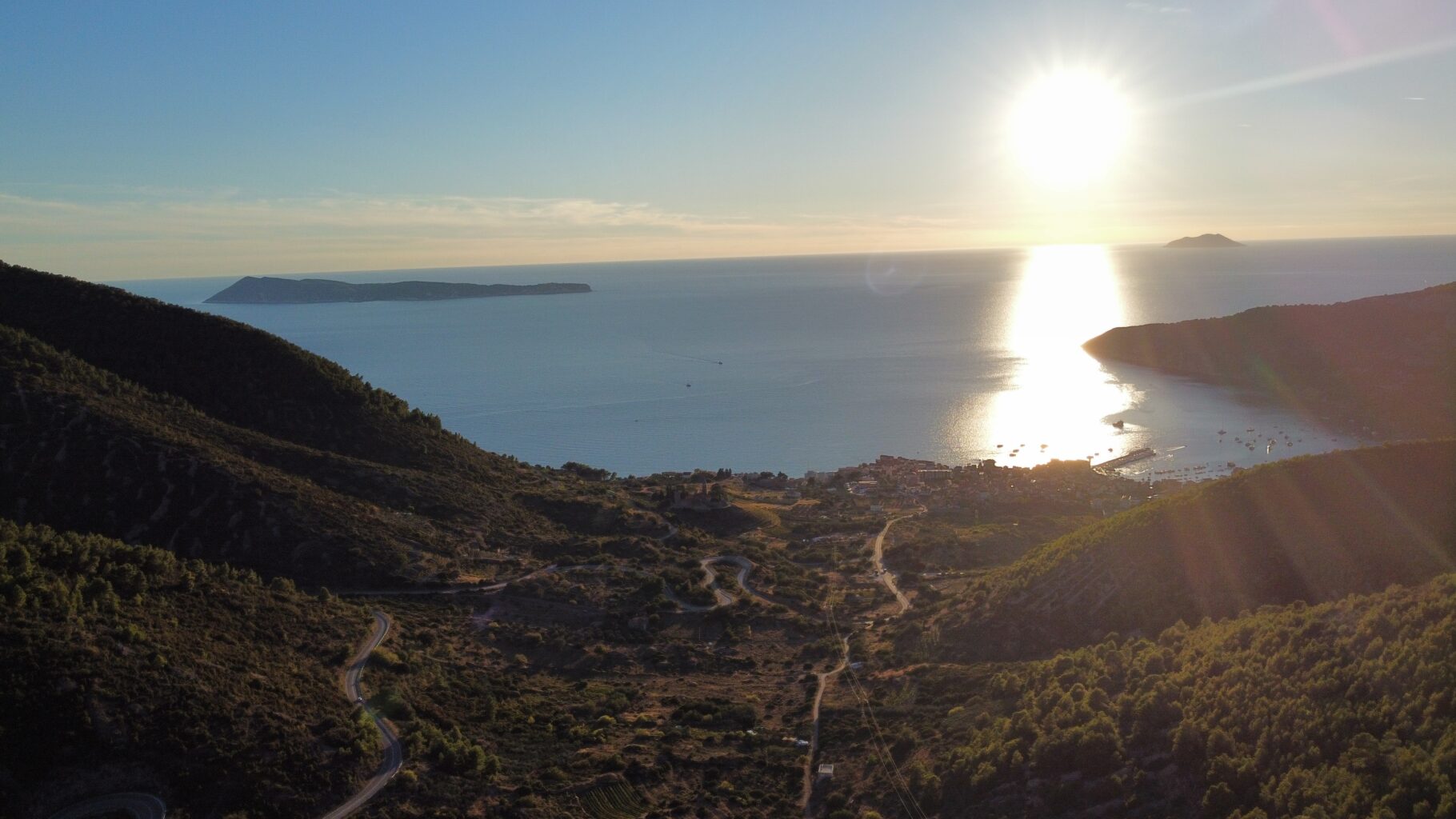
Sailing towards Vis after a very long time, it was inevitable for me to wonder if this trip make sense. Would it be possible to accept the old space and new people, when the memory of those who are no more remains, woven into the fabric of the island and my own life? About 40 years ago in Komiža, at a time that still allowed for some optimism, in a country that would disappear only a few years later, a gathering of those who still hoped for positive political change was held. In contrast to the Korčula summer school (1964-1974), there were no internationally renowned academics, and the atmosphere exuded more of an activist charge than a desire to indulge in philosophical and sociological reflections. Rudi Supek, Milan Kangrga, Ivan Kuvačić, Miladin Životić, Nebojša Popov, Ljuba Tadić were present, to name just a few… Along with them, there was a motley crowd of change-seeking ‘leftists’, ‘anarcho-liberals’ and dissidents from all corners of Yugoslavia. But the school was banned after only two years. Society split up, and the country disintegrated. Forty years later, everyone listed above is no longer among the living. The others follow mostly separate life stories. I’m back in Vis, without them; reason enough for a justified dose of private nostalgia, regret for the past. But, as it turned out, nostalgia can be put in the right place if, despite the gloomy present, new energies are able to gather in the same place.
The Island School of Social Autonomy (ISSA) officially started its work in September 2023. It was conceived as a meeting place for all who strive for flights of imagination, learning, exchange of knowledge, energy, and experimentation of the type that traditional educational systems do not offer. What is offered by these systems, and accepted by inertia as meaningful is, as Ivan Illich said, propaganda that aims to convince us that we need society exactly as it is. The truth is somewhere else entirely; societies of agile consumers and the constant capitalist pursuit of ‘growth’ that we have today are exactly what we don’t need. The school on the island of Vis focuses on designing a way of living (not just surviving) in a time characterized by political, economic and climate crises, including the destruction/extinction of the world as we know it. The ambition is to develop a social experiment that can become a platform for thinking about a different world. Although the participants share the conviction that it is not possible to stop the avalanche that destroys everything without mercy, they do not advocate “romantic escapism”, “cultivating one’s own garden” or staring into one’s own navel. ISSA is conceived as a place of contemplation and action, facing reality but also dealing with social autonomy right now. The island of Vis was not chosen by chance, but as a place in the middle of the ocean that has not been bypassed by the most diverse crises, as a symbol of a possible archipelago, a region where festina lente (Mediterranean ‘slowly’ or ‘pomalo’) is a philosophy of life, and as a significant location of resistance to fascism.
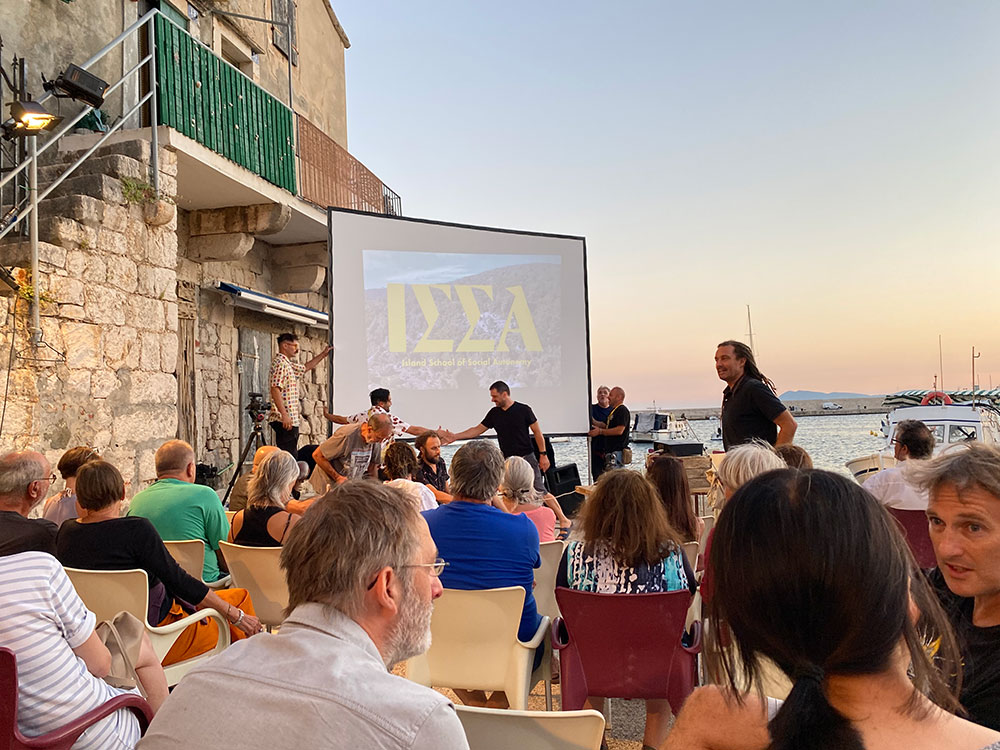
The initiators are Srećko Horvat, Goran Bogdan, Nadežda Čačinović and numerous other philosophers, artists, actors, activists, poets and journalists from various countries, who are slowly but surely being joined by those who believe that autonomy as a form of social organization is more necessary today than ever. This means cooperation, compassion, solidarity, forms of self-government and expanding the network of connections with similar initiatives, wherever they are. The emphasis is on the need for responsibility (toward oneself and others) and care for those who need help, be it people, other animals, plants, places, or the Earth itself. Active members successfully combine the exchange of ideas, dissemination of information and physical work, with the motto “We build the school, the school builds us”. The seat is in a small house in the middle of the island, not easily accessible, and restored by the hard work of the “happy Sisyphus”, initiators and numerous friends. Solar panels are installed, a library is created, an archive is planned, and a symposium will be organized every year, which will include lectures, workshops, concerts, art exhibitions and work actions. The intention is also the revitalization of three hectares of neglected land through/and the creation of a Mediterranean garden in the forest. Preparations for the pirate radio station are well underway, and these are only the first steps; there is no shortage of ideas and plans for further actions. The ambitious plan, in the five-year period (or in several of them), is the construction of an amphitheatre on the school’s grounds that could accommodate up to 500 people. The intention is also to start a publishing house, with an emphasis on children’s books. In formulating their platform, the initiators list the questions that the school will deal with: What type of education do we need to secure the future? How to achieve a ‘good life’ amid the processes of destruction, and what does this ‘good life’ really mean? What forms of social organization and coexistence can we encourage because of, or despite, the imminent disaster?
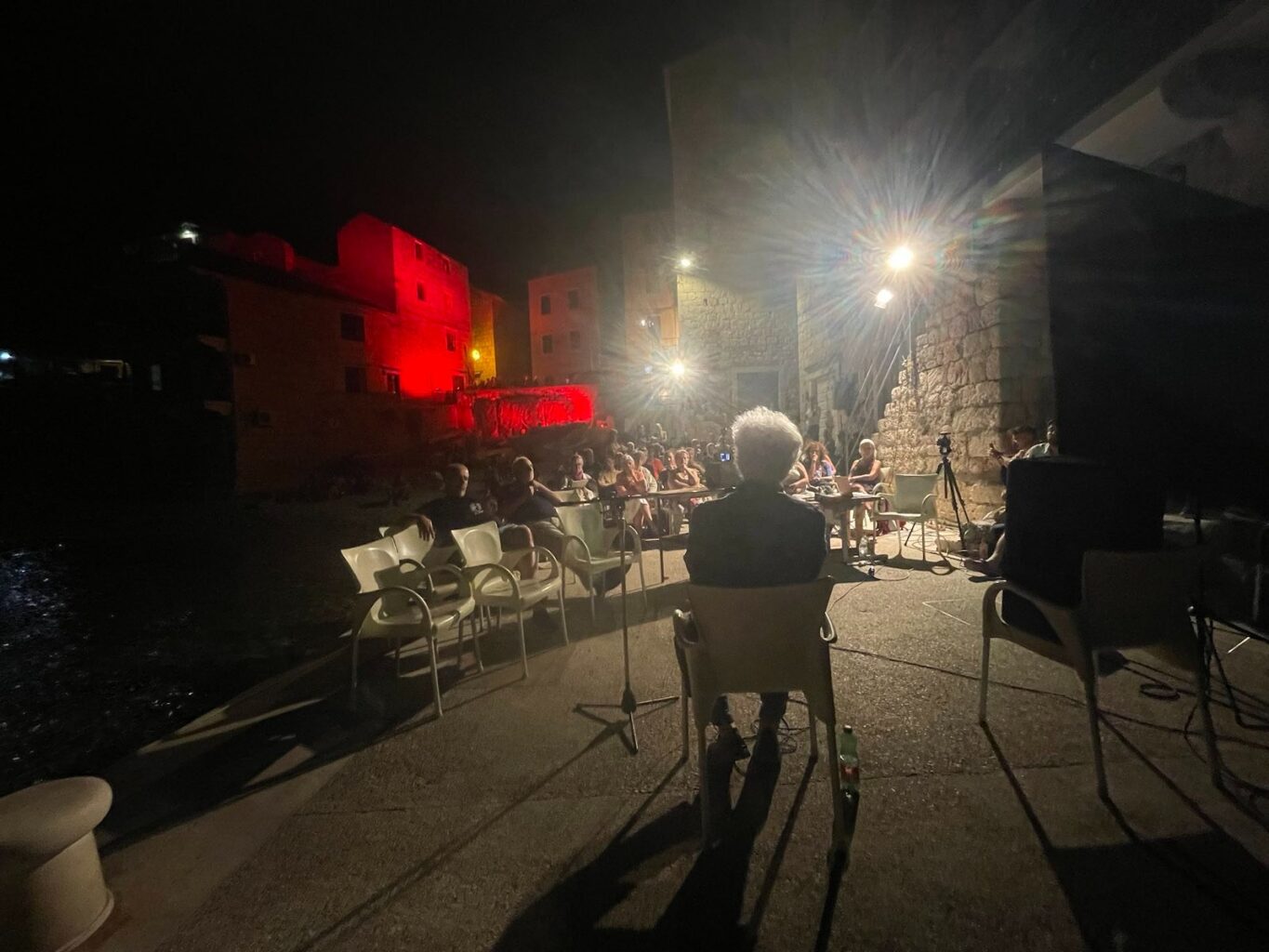
On this occasion, the only “classical” lecture was given by Franco “Bifo” Berardi, an Italian Marxist of autonomist orientation, and also one of the initiators of ISSA. His vision of the future is not bright; he does not accept the false hope of a “happy ending” or a successful continuation of the journey. What he stands for is internationalism and solidarity with the courage to analyse the contemporary world and face the inevitable. The policies of the great powers, war and capitalism in conjunction with a new type of fascism and climate change must be re-examined without superficial embellishment. He insists that the term ‘climate crisis’ does not correspond to the state of affairs; you can get out of the crisis. According to him, a more accurate term is ‘collapse’. He sees the school as a search for alternatives whose only limit is imagination. It should be a long-term project of building bridges across the abyss of aggression and violence, in search of friendship and happiness, despite everything. The metaphor he uses is “happy Cassandra”, and she can become such only when she is freed from Apollo’s curse so that her prophecies can reach people. When asked by the audience how new generations could feel better in hopeless times, he answered with the words from Antonio Machado’s poem, “Caminante, no hay camino”: “Traveler, your footprints are the path and nothing more; Traveler, there is no path. The path is made by walking”. But some form of hope is certainly something that the youth expect from wise people. After the lecture, passing through the peaceful streets of Vis around midnight, I came across a dozen excited local visitors. One of them just articulated the basic problem: “It is easy for him to tell that there is no hope. He is old. There must be some hope.” The work of the school will certainly be interesting and turbulent, but that is also the intention. The necessary question that Berardi asks, namely “How did we get to this?”, must and will be combined with the search for an answer to the question “How to live?”
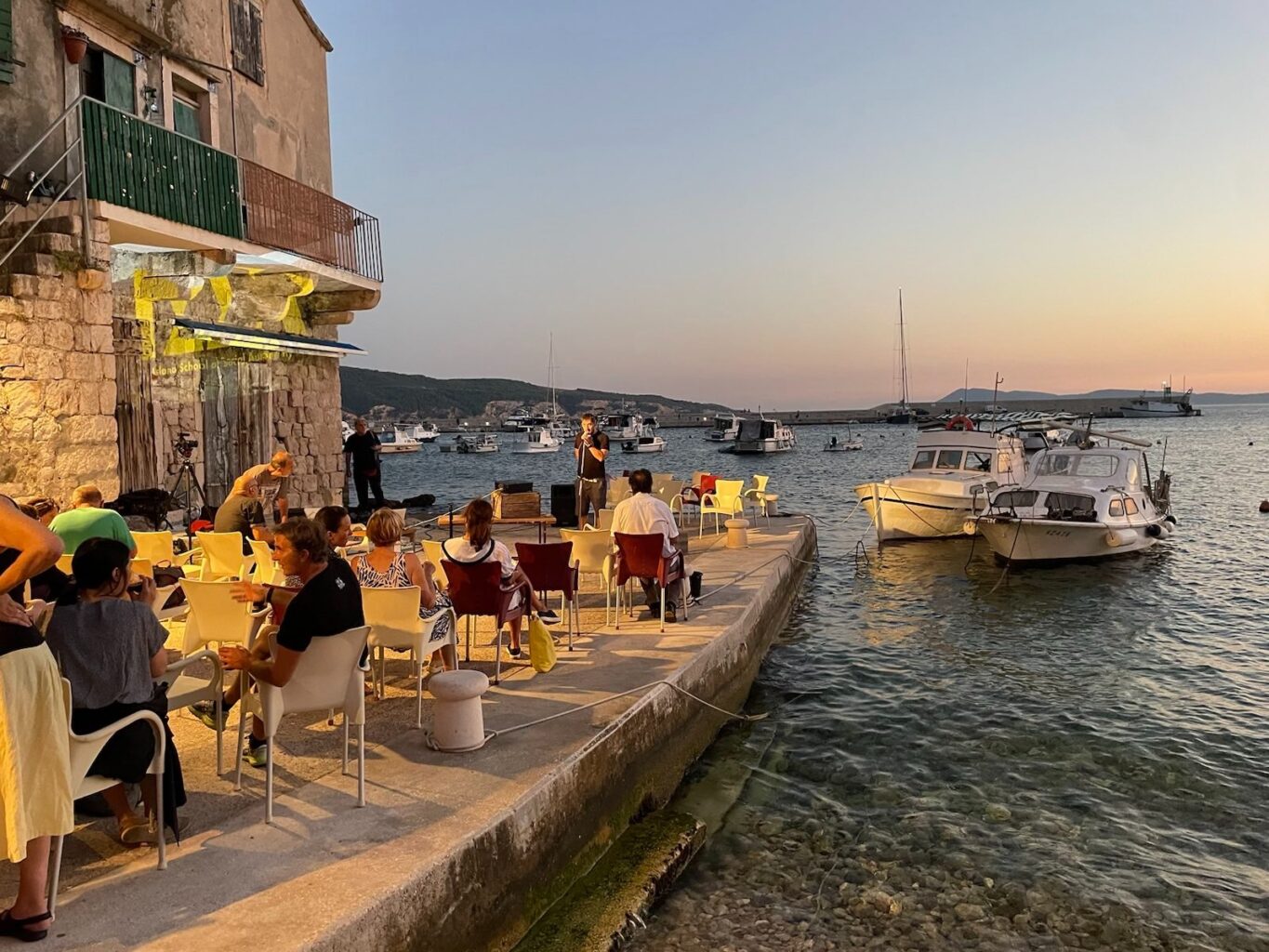
One of the initiators of this initiative, the philosopher Srećko Horvat, published the book “After the Apocalypse” two years ago, which deals with the analysis of issues that the school will be examining. At the beginning of the introduction, he quoted Kierkegaard: “A fire broke out behind the scenes in the theatre. A clown came out to warn the crowd; they thought it was a joke and applauded. He repeated the warning; the acclamation became even greater. I think the world will end just like that: with the general applause of smart people who believe it’s a joke.” Horvat thinks that the time where we had a choice between socialism and barbarism has passed, because our only alternative today is a profound new design of the world or disappearance. During the isolation due to the pandemic, most people aspired to return to “normal”, and the fact is that this “normal” was and remains a real problem. As far as climate change and nuclear threats are concerned, we are entering the realm of ‘supraliminality’, which is so far beyond our powers of understanding that we necessarily remain blinded by healthy eyes, as Gunther Anders said a long time ago.
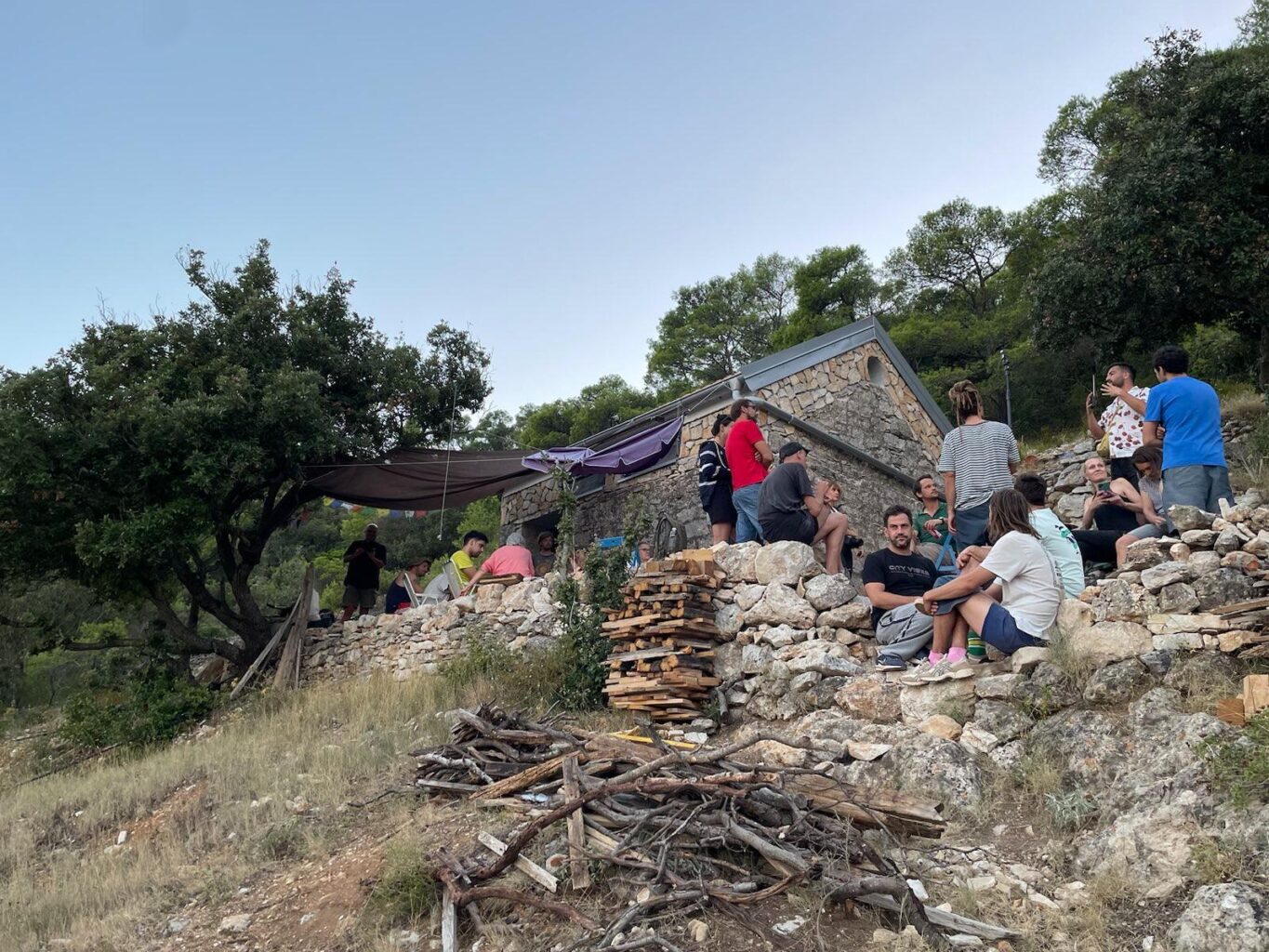
With a lot of imagination, it is possible to carefully consider the weight of our moment if you are sitting in front of a stone house under construction, in good company, at the top of an island that looks like a timeless oasis of Mediterranean beauty at the end of summer. Horvat, finding a few minutes to take off his gloves and rest after a second round of wheeling sandbags along a steep path, tells me that ambition is not hoping that the problems around us will lose their strength. The idea of the school is to combine theory and practice, work together, create friendships and develop solidarity while advocating for alternative forms of education. They should be aimed both at art and at the development of a different narrative based on demystification or translation into understandable language of presentations of scientific fact that no one fully understands. The path leading to the stone house is challenging, but it exists. The other paths, in the sphere of ideas, creativity and solidarity, will be created while walking.
It is believed that the Peripatetics, like Aristotle, thought better while walking. During their early youth, Australian aborigines practised a months-long ritual journey, known as a “walkabout”, the goal of which was the transition to the world of adults. In Belgrade and other cities of Serbia, political protests known as “walks” have been held for decades. Movement is a necessity of life, in the same way that the winding line on the cardiogram means that we are still breathing. In today’s world, it can keep at bay psychological if not always physical pollution that threatens from all sides. How, in which direction, and with what goal in mind someone will walk depends on personal choice. During the four days of the inauguration of the ISSA (7-11 September), the group did three walks together. The first tour, led by Bruna Bebić and Srećko Horvat, moved along the places important for the anti-fascist struggle of the inhabitants of Komiža, in addition to the remaining monuments (those that were not removed during the nineties out of some rather crazy reasons, not only on Vis, but throughout Croatia). The following day, artists and researchers Selena Savić, Goran Savičević and members of the !Mediengruppe Bitnik Goran Smoljo and Carmen Weisskopf took the participants of the school, under the banners, on a walk through the town of Vis, called “Tour of one star”. The ‘one star’ is an allusion to bad reviews of a place, in this case Vis, publicized through Google, indicative of the ability of large global companies to describe something they don’t know and thereby influence those who believe them, as well as the life of those who depend on tourism for their livelihood. A comprehensive report was published in “Jutarnji list”. On the last day, a walk along narrow path heading uphill was organized, leading to a site near Tito’s Cave, where the centre of the school is located. Those more physically able started construction work, and everyone socialized, meeting new people worth knowing, planning future actions, learning about the possibilities of a pirate radio station… The youngest active participant was one-and-a-half- years old. A day to remember and generate energy which can enable a more human view, even in the dark future.

On 10 September, the 18th anniversary of the liberation of Vis from fascism, a celebration was held on a small beach in Komiža, attended by potential members, locals and tourists in addition to the already active participants of ISSA. Actors Goran Bogdan and Milivoj Beader read poems of Brecht, Kavafis and Mayakovsky, followed by those by Desanka Maksimović, Vesna Parun, Izet Sarajlić, Ivan Goran Kovačić and Jure Kaštelan. The local poet Pepe Kalafat spoke his poems, and we heard a lot about the days of war, people that should not be forgotten, challenges and struggles. There was music (for example “Bella ciao” performed by Luka Nižetić, joined by everyone from the audience who knows the words). Friends appeared with beans for everyone, in traditional and vegetarian versions. Of course, the organization, technical assistance, performances, cooking and cleaning later were the result of solidarity and volunteer work with the support of the City of Komiža and the Tourist Board. Informal self-organization was fully expressed. Autonomy makes as much sense today as it did yesterday, or even more. The alternative is to wait forever for someone else to come up with an idea, suggest, change, or impose something. ISSA is a kind of search for utopia, regardless of the fact that we live in times where it is much easier to imagine dystopias. But what is easier is usually not better.
